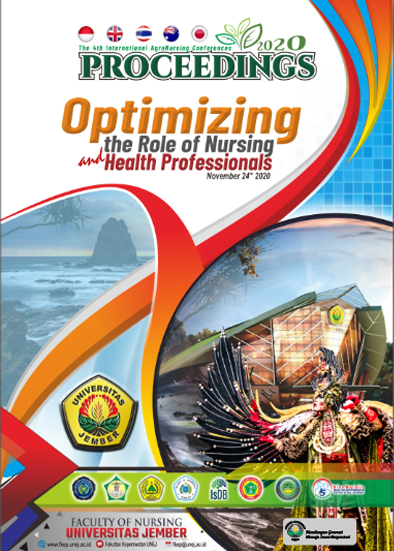RELATIONSHIPS AMONG PARENTING STYLE, SELF-REGULATION, AND SMARTPHONE ADDICTION PRONENESS IN INDONESIAN MIDDLE SCHOOL STUDENTS
Abstract
Background: Although smartphones have countless benefits, many harmful effects are also at stake when they are overused. Adolescents are facing the troubling impacts of smartphone addiction, deteriorating their future as the nation’s next generation. Purpose: The study aimed to identify the relationships among parenting style, self-regulation, and smartphone addiction proneness in Indonesian middle school students. Methods: This study used a cross-sectional, descriptive study design. Data collection took place from the 7th of January to the 8th of February, 2019 in five public junior high schools located in Jember Region, Indonesia. The total sample of this study was 158. Parental Authority Questionnaire, Self-Regulation Questionnaire, and Smartphone Addiction Proneness Scale were used to measure mother’s parenting style, self-regulation, and smartphone addiction proneness, respectively. We applied Chi square test and Fisher’s exact test to identify the differences in smartphone addiction proneness between the non-risk group and the risk group. Relationship between parenting style and smartphone addiction proneness was analyzed using a Pearson’s correlation coefficient. A Pearsons’s correlation coefficient was also used to identify the correlation between self-regulation and smartphone addcition proneness Results: The differences in smartphone addiction proneness between the risk group and non-risk group were significant depending on sex (p=0.004), daily smartphone usage time (p=0.025), purpose of smartphone usage (p=0.001), and the most frequently used Social Networking Site (SNS) (p=0.016). A significant positive correlation was found between permissive parenting style and smartphone addiction proneness (r= 0.174, p=0.029). A significant negative correlation was found between self-regulation and smartphone addiction proneness (r= -0.448, p=0.001). Conclusion: The results from this study can be used as a reference to raise the awareness of smartphone addiction to Indonesian parents and adolescents, support nursing schools to establish educational programs related to healthy use on smartphone and SNS applications, and assist nursing schools, school staff, and relevant experts in developing adolescents’ self-regulation ability, and educate parents in developing a positive parenting style.
Keywords: smartphone addiction proneness, parenting style, self-regulation, middle school students, Indonesia


